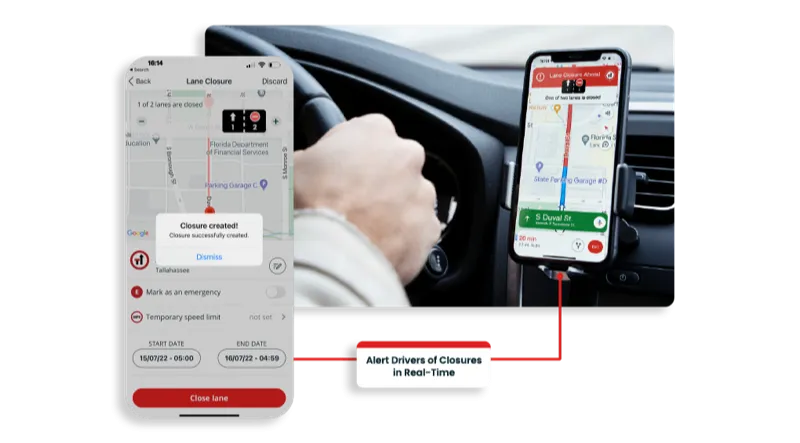The Australasian College of Road Safety (ACRS) has released its 2017 ACRS Submission to Federal Parliamentarians - The way forward to reduce road trauma, outlining what it says is Australia’s stalled progress against National Road Safety Strategy 2011-2020 targets for death and injury reduction.
According to ACRS, road trauma is one of the highest ranking public health issues Australia faces , with 1,300 deaths and 37,000 injuries per year, and rising.
The causes and consequences of road trauma contin
March 28, 2017
Read time: 2 mins
The Australasian College of Road Safety (ACRS) has released its 2017 ACRS Submission to Federal Parliamentarians - The way forward to reduce road trauma, outlining what it says is Australia’s stalled progress against National Road Safety Strategy 2011-2020 targets for death and injury reduction.
According to ACRS, road trauma is one of the highest ranking public health issues Australia faces , with 1,300 deaths and 37,000 injuries per year, and rising.
The causes and consequences of road trauma continue to have a serious impact on Australia’s productivity, estimated by the federal government to cost the economy US$20.5 billion (AU$27billion) per year in 2011 (US$24.3 billion (AU$32billion today) and equivalent to 18 per cent of health expenditure.
ACRS says road trauma in rural and regional Australia is over-represented in the statistics, in 2015 accounting for around 65 per cent of all trauma. Over the 2003 to 2015 period, 2081 (65 per cent) worker fatalities involved vehicles. Of these, almost half (49 per cent) occurred on a public road. Transport crash injury cases increased from 12 per cent to 13 per cent of all injury hospitalised cases during the periods 2012-2013 and 2013-2014.
While the majority of road safety improvements are implemented and seen as the responsibility of State, Territory and Local Governments, the impact of road trauma is evident in programs across all Federal portfolios, in business, and of course across the community.
The Submission presents comprehensive recommendations on the way forward to reduce road trauma and calls on the Federal Government to commit to the ultimate goal of eliminating fatalities and serious injuries on the road.
It also calls for a full inquiry into the impact of road trauma on Australia’s productivity, and the national investment and policy decisions required to achieve the nation’s policy goals of a safe road transport system.
ACRS is also calling for a full policy review on leveraging greater safety results from the current investment in road transport; and for all new vehicles to be equipped with world best practice safety technology and meet world best practice crash-worthiness.
It also says a six-monthly forum on road safety should be established, to review progress in road safety at a national level, and discuss key initiatives for significantly improving results.
According to ACRS, road trauma is one of the highest ranking public health issues Australia faces , with 1,300 deaths and 37,000 injuries per year, and rising.
The causes and consequences of road trauma continue to have a serious impact on Australia’s productivity, estimated by the federal government to cost the economy US$20.5 billion (AU$27billion) per year in 2011 (US$24.3 billion (AU$32billion today) and equivalent to 18 per cent of health expenditure.
ACRS says road trauma in rural and regional Australia is over-represented in the statistics, in 2015 accounting for around 65 per cent of all trauma. Over the 2003 to 2015 period, 2081 (65 per cent) worker fatalities involved vehicles. Of these, almost half (49 per cent) occurred on a public road. Transport crash injury cases increased from 12 per cent to 13 per cent of all injury hospitalised cases during the periods 2012-2013 and 2013-2014.
While the majority of road safety improvements are implemented and seen as the responsibility of State, Territory and Local Governments, the impact of road trauma is evident in programs across all Federal portfolios, in business, and of course across the community.
The Submission presents comprehensive recommendations on the way forward to reduce road trauma and calls on the Federal Government to commit to the ultimate goal of eliminating fatalities and serious injuries on the road.
It also calls for a full inquiry into the impact of road trauma on Australia’s productivity, and the national investment and policy decisions required to achieve the nation’s policy goals of a safe road transport system.
ACRS is also calling for a full policy review on leveraging greater safety results from the current investment in road transport; and for all new vehicles to be equipped with world best practice safety technology and meet world best practice crash-worthiness.
It also says a six-monthly forum on road safety should be established, to review progress in road safety at a national level, and discuss key initiatives for significantly improving results.







